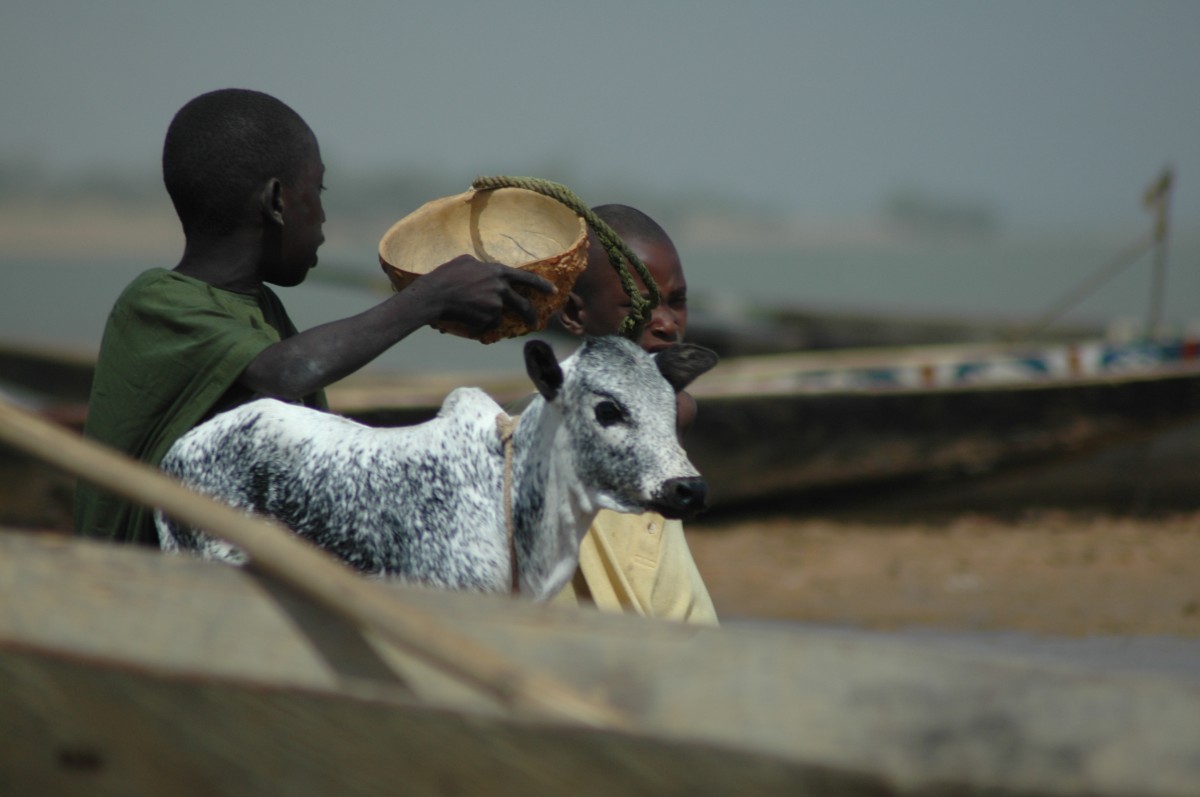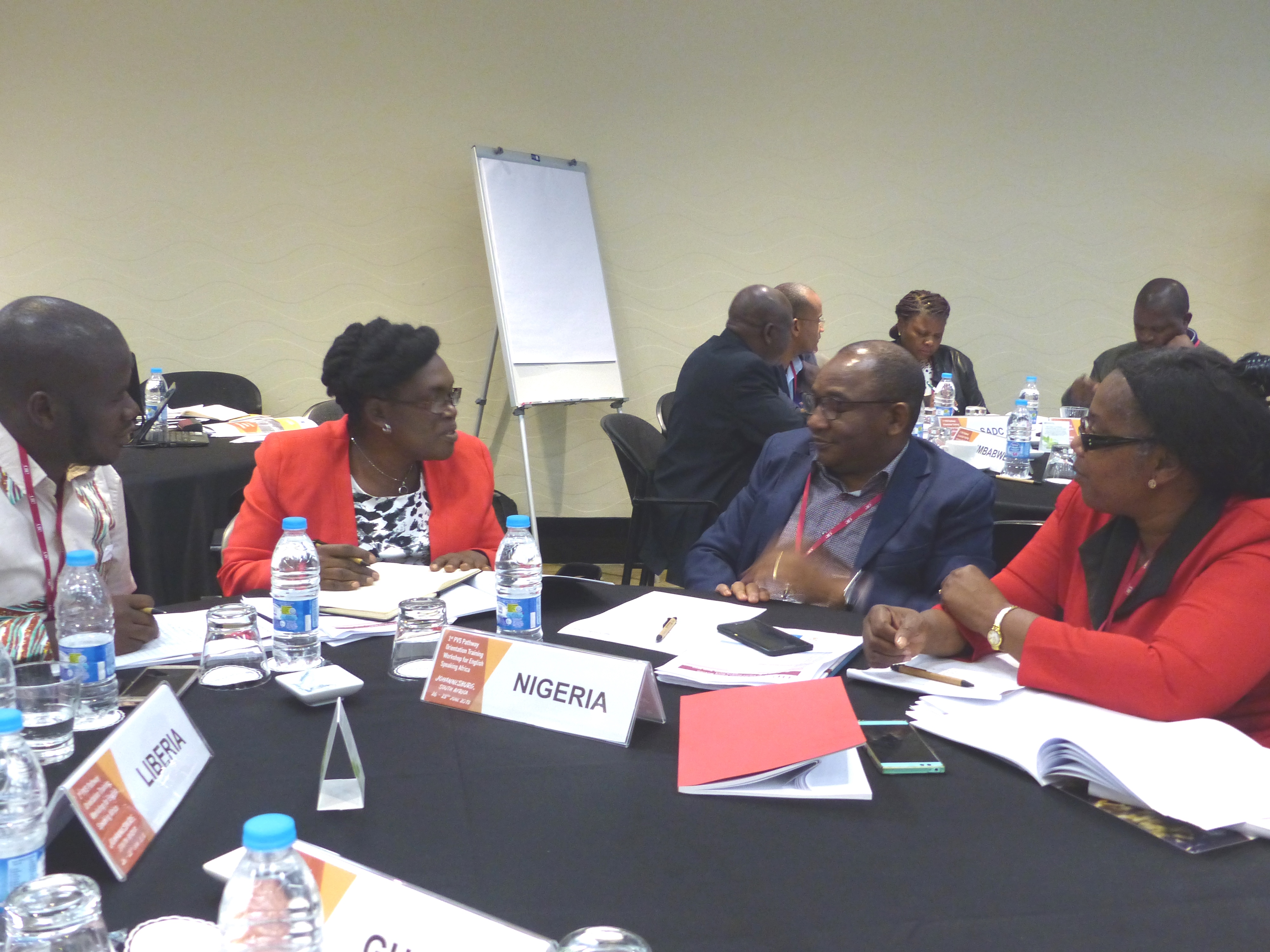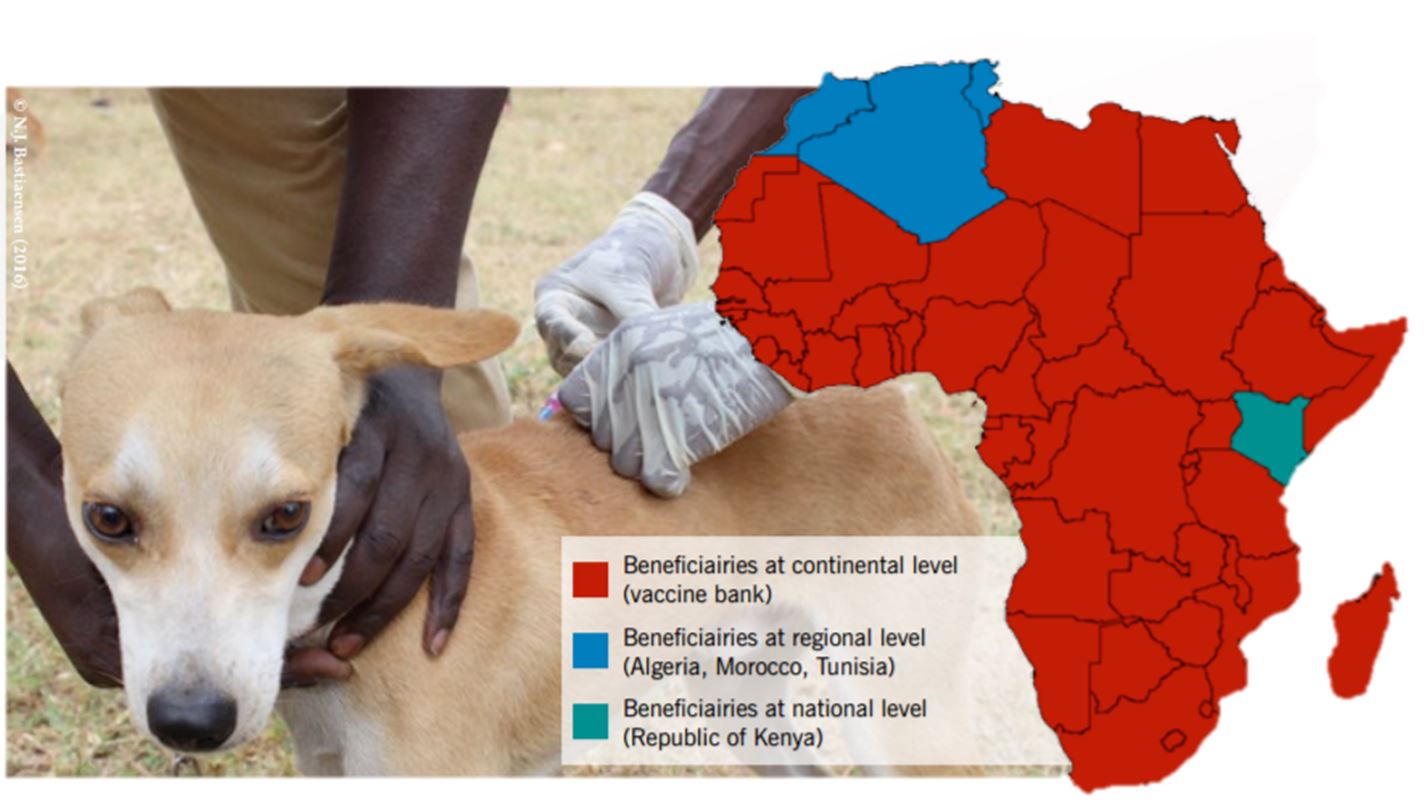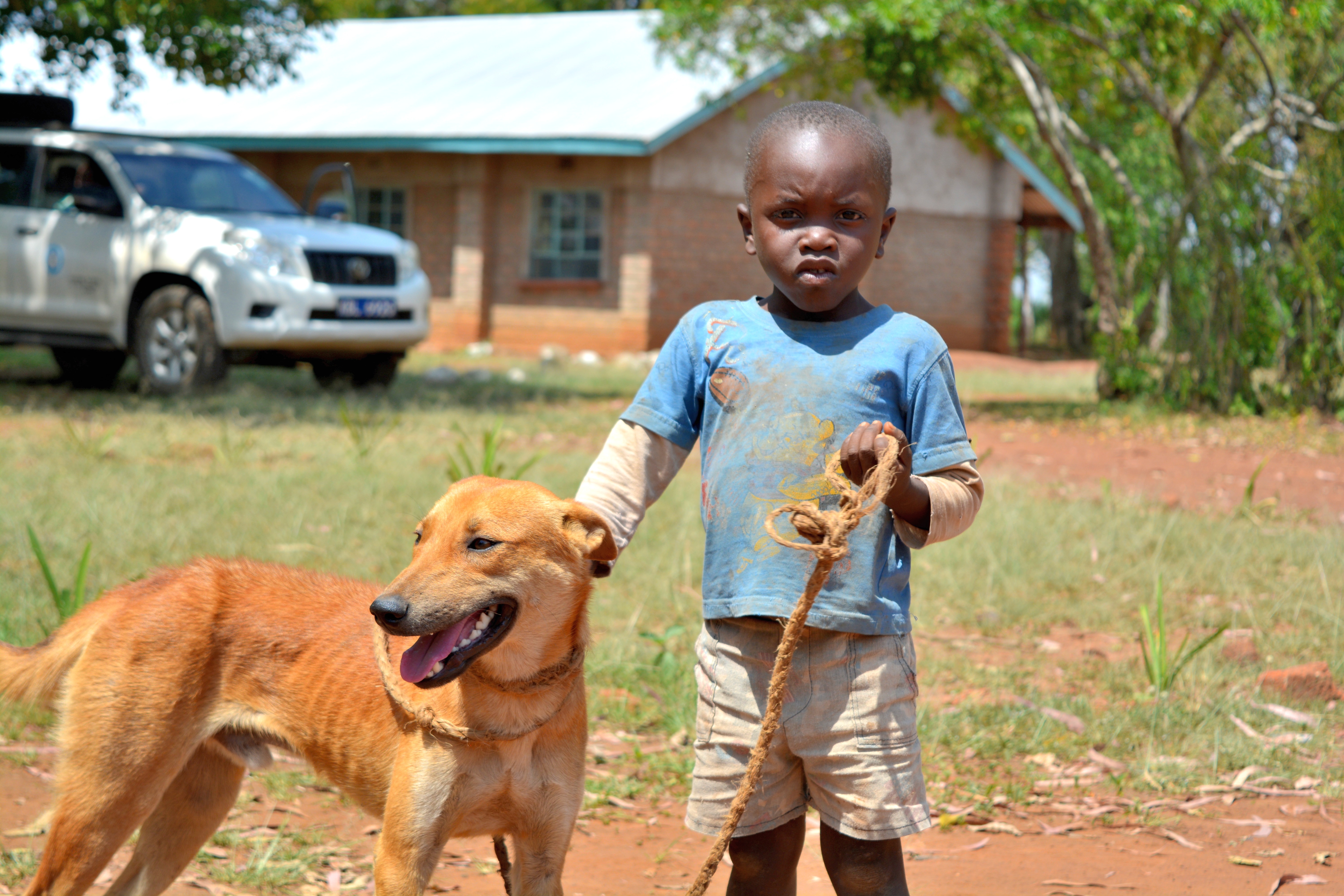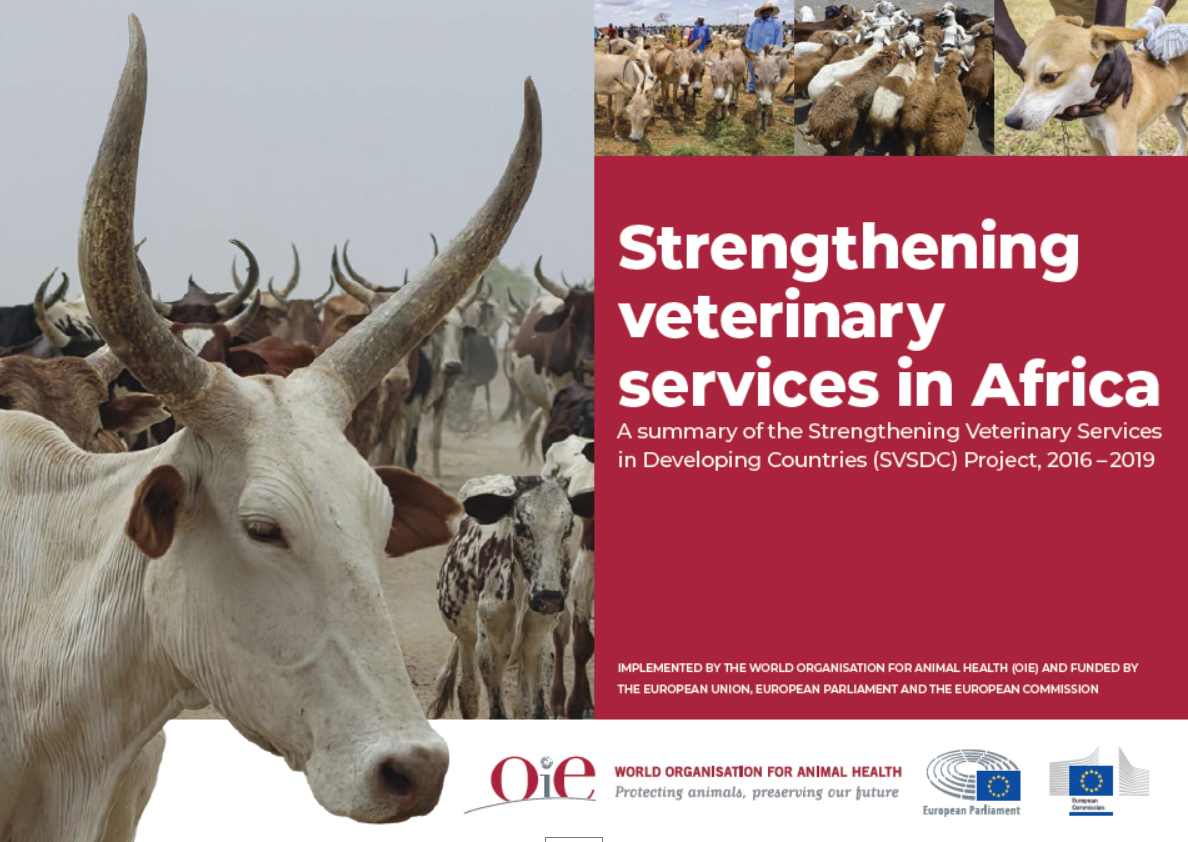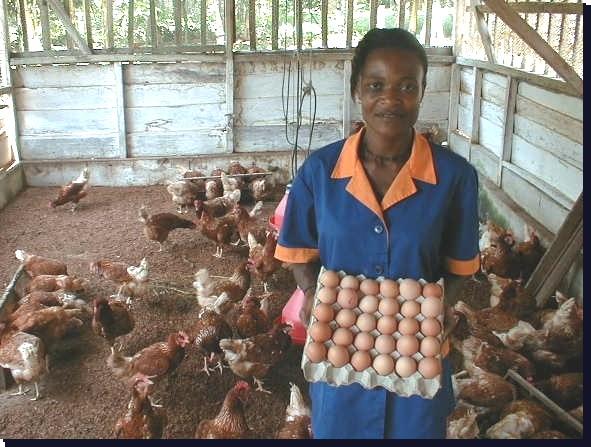
The EU-funded Strengthening of Veterinary Services in Developing Countries (SVSDC) Project, implemented by the OIE between 2015 and 2019 came to a close earlier today, 23 December 2019.
The SVSDC project is a 3.5 million Euro project which was funded by the European Union, through an European Parliament grant and administered by the European Commission, aimed at strengthening African Veterinary Services so that they can ensure better governance, health safety, food security and food safety for both animals and people in Africa.
The project was implemented by the World Organisation for Animal Health (OIE) , beginning with the signature of the contract in December 2015 and active through to 23 December 2019. The project had two main components namely the “Strengthening of Veterinary Services in Africa” and “Rabies control pilots in Kenya and North Africa”.
For both components the OIE worked in close partnership and in a collaborative approach with other projects, donors, non-governmental organisations (NGOs) and other stakeholders to enhance the impact and to create “win-win” situations for the implementing bodies as well as for the beneficiaries.
Under the first component synergies with the “VetGov” project, an EU funded project executed by the African Union Inter-African Bureau for Animal Resources (AU-IBAR), the Food and Agriculture Organisation of the United Nations (FAO) and the OIE during 2012 to 2017, needs to be mentioned. Objectives of both projects were similar and the OIE, as a partner in project implementation, could focus funds from both projects to support countries with the full scope of OIE support mechanisms.
Both projects supported countries in receiving different missions under the OIE’s flagship capacity-building programme, the “Performance of Veterinary Services” (PVS) pathway, such as PVS evaluation – and PVS evaluations follow-up -, gap-analysis -, laboratory – and aquatic missions, as well as the veterinary legislation support programme (VLSP). In addition, the SVSDC project also put major emphasis on capacity building through the training of OIE National Focal Points (NFP). OIE member countries normally appoint up to eight NFP specialists. The trainings involved NPF in the following disciplines:
Ten such trainings took place during the project period, of which four were pan-African, five for anglophone Africa and one for francophone Africa.
Special mention also needs to be made of a new training approach for the PVS tool : capacity building for self-evaluation using PVS. The SVSDC project supported two pan-African trainings for francophone and anglophone countries, and two national trainings, for South Africa and for Ethiopia. The results of the national training courses are tangible, as both countries decided to embark on self-evaluation of their decentralised administrative sub-units in 2019, with Ethiopia aiming to complete the evaluation in all of its nine Regions and two chartered cities by the end of 2019, while South Africa only assessed one Province in 2019, with the other eight to follow in 2020. Some participants from all four trainings have also been selected as “expert trainees” to join PVS mission teams in view of becoming fully certified PVS experts in the future.
PVS Orientation Training in Johannesburg, South Africa. Picture (c) P. Bastiaensen (oie) 2018.
Component 2 of SVSDC was very successfully implemented in Kenya with the assistance of the Zoonotic Disease Unit (ZDU), established jointly by the Ministry of Health and the Ministry of Agriculture, Livestock and Fisheries. Several counties with high numbers of reported human rabies cases were selected and evidence based, field tested methods were used to control rabies in dogs.
Examples for these approaches are the organisation of rabies vaccinations during school holidays following sensitisation campaigns run for school children during the school periods, in close collaboration with the Ministry of Education; the establishment of a toll free telephone number for dog bite reporting and the close collaboration with the treating hospitals who introduced a “dog bite register” in which the recommended schedule of post-exposure-prophylaxis (PEP) treatment is registered.
SVSDC map rabies beneficiaries
Dog vaccination campaigns in Kenya, but also in North Africa, the second target area of SVSDC, were supported by donations from the OIE Rabies Vaccine Bank, established in 2012. Donations from this vaccine bank were provided to Kenya, Tunisia, Algeria and to eight other African countries, totaling 2,899,900 doses.
Countries benefiting from the Vaccine Bank must follow a certain procedure to access vaccines, as outlined in the OIE’s Vaccine Bank Policy Paper (2018) and they should have a national rabies control strategy and funds to support the vaccination campaigns before receiving vaccines from the Bank.
Beyond the target countries of SVSDC, the OIE also supports the global elimination of rabies through its participation in the “United Against Rabies” (UAR) initiative organised by WHO, FAO and GARC with the objective to eliminate rabies by 2030.
The SVSDC project funded specific activities, co-funded larger initiatives, and worked hand-in-hand with the VetGov project on PVS Pathway implementation and in attracting support from other donors, national as well as international, for rabies control. The project can also be considered as a catalyst for OIE policies, as evidenced by the development of the OIE Vaccine Bank Policy, the enlargement of the PVS Pathway and the membership in the UAR. At country level, it has supported the practical application of the One Health concept in rabies control and has attracted complementary funding for its activities.
Dog
Rabies vaccination campaign in Siaya county, Kenya, involving schoolchildren during the school holidays. Picture (c) M. Muturi (zdu) 2016.
